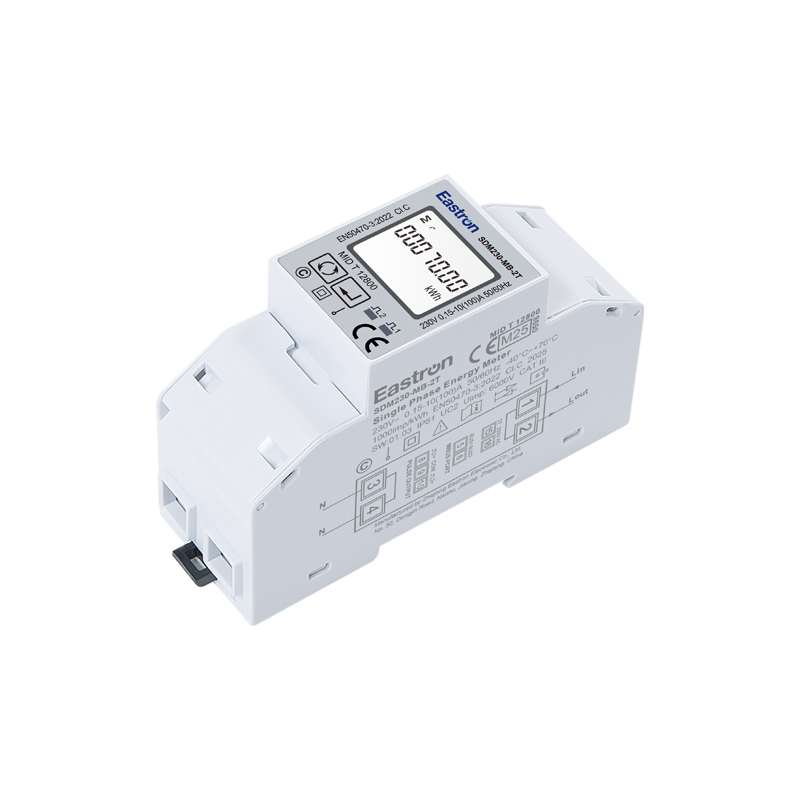Product Consultation
Your email address will not be published. Required fields are marked *
As electric vehicles (EVs) continue to reshape the automotive landscape, the supporting infrastructure has become equally critical to ensuring a seamless and efficient user experience. Among the most essential components of this evolving ecosystem is the EV Charger Meter —a high-precision device that not only measures energy consumption during charging but also serves as a cornerstone for billing accuracy, grid integration, and overall system optimization.
While often overshadowed by more visible elements such as battery capacity or vehicle range, the EV charger meter plays a pivotal behind-the-scenes role in enabling smart, sustainable, and transparent energy usage. This article explores the technological intricacies, regulatory importance, and evolving functionality of the EV charger meter within both private and commercial charging environments.
Content
At its core, an EV charger meter is a digital instrumentation device designed to measure the amount of electrical energy transferred from the power source to the vehicle during a charging session. It typically records parameters such as voltage, current, power (kW), and total energy consumed (kWh), providing real-time data that can be used for monitoring, diagnostics, and billing purposes.
Unlike traditional electricity meters found in homes or industrial settings, EV charger meters are engineered to operate under dynamic load conditions, where power levels can vary significantly depending on the vehicle's state of charge, available grid capacity, and temperature factors. They must also comply with international standards such as IEC 62053 and MID (Measuring Instruments Directive) to ensure legal metrology compliance when used in commercial applications.
The deployment of EV charger meters varies widely across different types of charging systems:
Residential Chargers : In private installations, the meter ensures accurate tracking of EV-related energy use, which is particularly important for users who want to separate EV costs from general household consumption or take advantage of time-of-use tariffs.
Workplace and Fleet Charging : For companies managing electric fleets or offering employee charging benefits, precise metering enables internal cost allocation and sustainability reporting.
Public Charging Networks : Here, the meter becomes a critical component of the payment and billing architecture. Whether using RFID, app-based authentication, or Plug & Charge protocols, the meter’s readings directly influence the transaction value. In fast-charging stations, especially those delivering 150 kW or higher, the meter must handle high-frequency sampling to maintain accuracy under fluctuating loads.

With the growing commercialization of EV charging services, regulatory oversight has intensified. Governments and standardization bodies have mandated that public EV charging equipment must feature certified metering systems to prevent discrepancies in billing and ensure consumer trust.
In Europe, the MID certification is required for any meter used in revenue metering applications, while in North America, ANSI C12 compliance is commonly enforced. These certifications guarantee that the meter meets strict tolerances for measurement accuracy under various environmental and electrical conditions.
Additionally, future-ready EV charger meters are being integrated with Open Charge Point Protocol (OCPP) and other smart grid communication standards, allowing them to interface with utility providers, demand response systems, and renewable energy sources like solar inverters and home energy storage units.
Modern EV charger meters are increasingly embedded with intelligent capabilities that extend beyond simple kWh tracking. These include:
By leveraging IoT connectivity and edge computing, these advanced meters enable utilities and service providers to optimize energy distribution, manage peak loads, and integrate EV charging into broader energy management ecosystems.
For end-users, smart metering translates into greater transparency and control over their charging habits. Mobile apps can display detailed breakdowns of energy usage, carbon footprint, and even projected costs based on historical patterns—all made possible by the granular data captured by the EV charger meter.
The evolution of the EV charger meter reflects the broader transformation taking place in the transportation sector. As electric mobility matures, the demand for precision, interoperability, and intelligence in every component—from batteries to billing—has never been higher.
Far from being a passive observer in the EV revolution, the EV charger meter stands at the intersection of energy policy, technology innovation, and consumer empowerment. It not only quantifies the flow of electrons but also helps define how we measure progress in a world rapidly shifting toward electrification.
Your email address will not be published. Required fields are marked *
We develop and produce high performance electricity meters, power analyzers, current sensors, communication modules and management systems. China Custom Smart Meters Manufacturers and Factory
Address:NO 52, Dongjin Road, Nanhu, Jiaxing, Zhejiang, China
Copyright @ Eastron Electronic Co., Ltd. All rights reserved Electricity Meters Manufacturers
